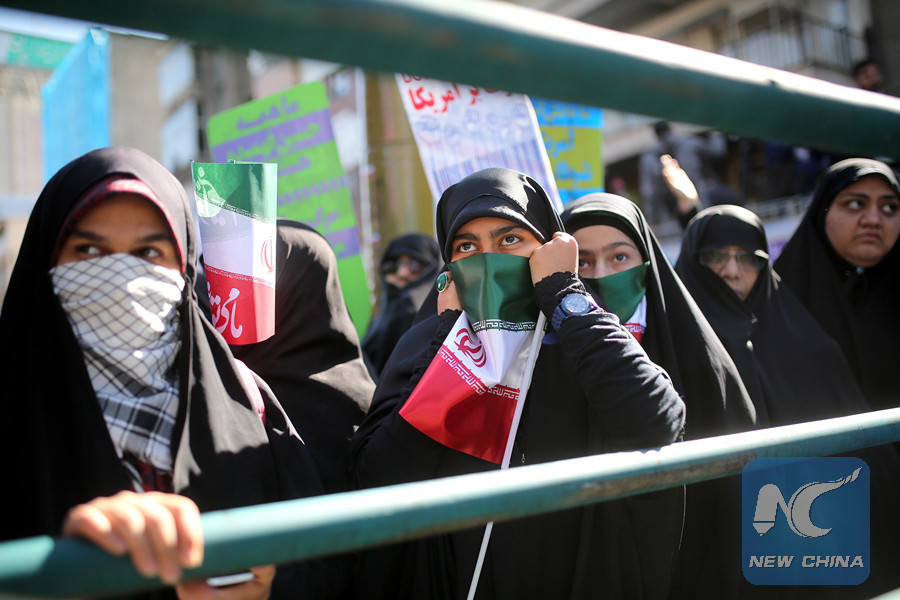TEHRAN, Feb. 2 (Xinhua) -- Iranian Foreign Minister on Thursday dismissed a U.S. security official's remarks about Iran's recent missile test as "baseless," official IRNA news agency reported.

Iranian students take part in a rally marking the 37th anniversary of taking over the U.S. embassy by a group of Iranian students in Tehran, capital of Iran, on Nov. 3, 2016.(Xinhua Photo)
Michael Flynn, national security advisor to U.S. President Donald Trump, said Wednesday that Iran's recent ballistic missile launch is in defiance of UN Security Council Resolution 2231.
"Iran's missile test does not contradict the UN Security Council Resolution 2231," Iranian Foreign Ministry Spokesman Bahram Qasemi was quoted as saying.
The remarks by Flynn are "baseless and provocative," Qasemi said, adding that "none of the Iranian missiles has been designed for delivering nuclear weapons."
Resolution 2231, adopted on July 20, 2015 to endorse a nuclear deal between Iran and six world powers, calls upon Iran not to undertake any activity related to ballistic missiles designed to be capable of delivering nuclear weapons, including launches using such ballistic missile technology.
"Iran's deterrent policy is by no means negotiable," Qasemi stressed.
On Thursday, Ali Akbar Velayati, the senior adviser to Iran's supreme leader, also downplayed Flynn's remarks, saying that the Islamic republic does not wait for permission from any foreign state to defend itself.
"The missile, which was put to test (recently) was defensive," Velayati said, adding that the Islamic republic will continue its missile work with full strength, according to Press TV.
"Iran does not seek permission from any country to defend itself," and will remain indifferent to Washington's threats, Velayati was quoted as saying.
Iran is the "foremost regional power," which enjoys extensive political and economic capacities, he added.
Iran's defense minister on Thursday called the recent Iranian ballistic missile test "successful."
The Iranian officials unanimously called the test "inalienable right" of the country to boost deterrent power.















